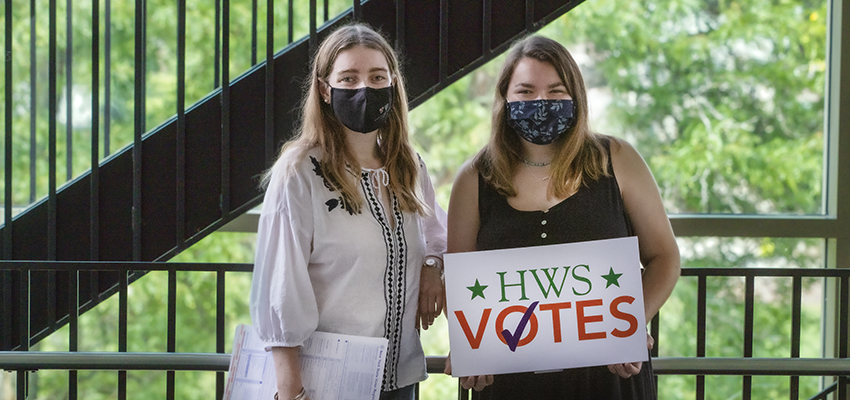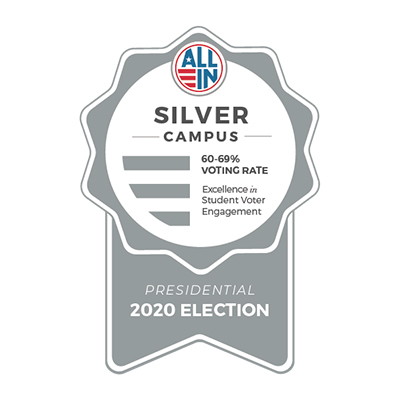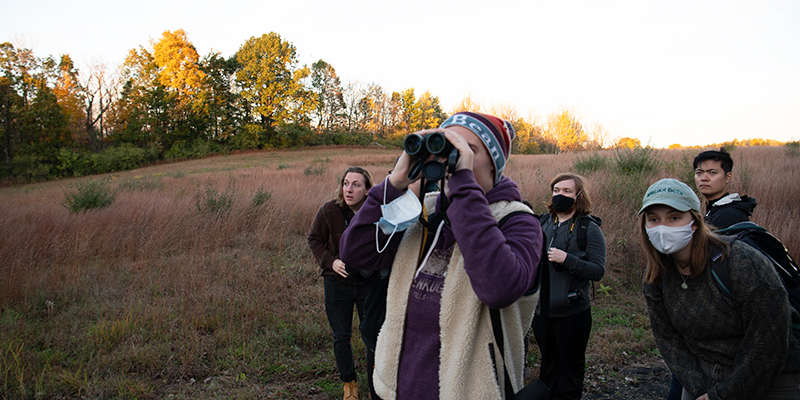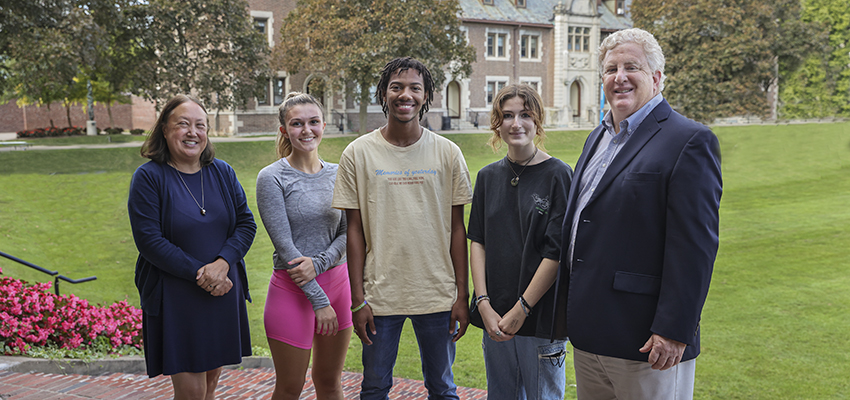
HWS News
10 November 2021 Voting Up at HWS
New data shows impact of HWS Votes on increasing student-voter turnout in last year’s presidential election.
A national report recently issued by The Institute for Democracy & Higher Education (IDHE) found that the number of students at Hobart and William Smith Colleges who voted in the 2020 presidential election rose 33.2% over the 2016 election.
The IDHE report found while 68.9% of HWS students voted in 2020 only 35.7% voted in 2016. The national average voting rate for college students in 2016 was 53%.

The HWS voting participation rate is nearly three percentage points higher than the national average for college students of 66%. “On campuses across the country, students built on the momentum swing of 2018 and voted at high rates in the 2020 election, with voter turnout jumping to 66% in last year’s presidential election,” the study’s authors say. IDHE is located at the Jonathan M. Tisch College of Civic Life at Tufts University.
Katie Flowers, the director of the Center for Community Engagement and Service Learning at HWS, congratulates members of HWS Votes for their 2020 campus efforts to increase voter turnout and is grateful to the student leaders, faculty and staff partners who hosted HWS Votes student leaders for classroom presentations and engagement, notably CCESL Assistant Director Amy Jackson and former Visiting Assistant Professor of Political Science Ricky Price. “This is well-deserved recognition for HWS Votes’ dedication and hard work. We are thrilled to share the results of their extensive efforts,” says Flowers.
Organizers Audrey Platt ’21, who now works as a fundraising associate at Maier Anderson, and Kate Equinozzi ’23 co-led the 2020 campus effort with the HWS Votes student coalition which included developing partnerships with StudentVote.org and Congress to Campus, as well as other programming.
Equinozzi stresses their efforts were focused on voter registration and voting—“not endorsing a specific political party or candidate. …We see voting as a threshold to civic engagement and are dedicated to registering voters and continuous civic engagement education and service.”
In this study, HWS voter registration rates also show similar increases, reaching 89%, which is above the 83% national average.
IDHE’s National Study of Learning, Voting, and Engagement is the nation’s largest study of college and university student voting. The dataset reflects all 50 states and the District of Columbia. The 2020 dataset includes 8,880,700 voting-eligible students representing 1,051 colleges and universities.
If students are interested in getting involved with non-partisan voter education efforts, they are encouraged to email vote@hws.edu and engage with year round registration and get out the vote efforts and programming, including Congress to Campus.
The photo above features Audrey Platt ’21 and Kate Equinozzi ’23.



